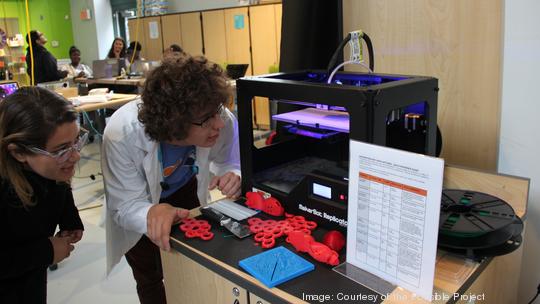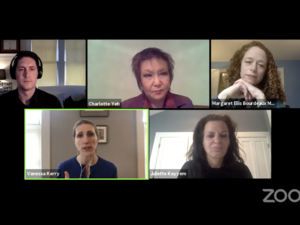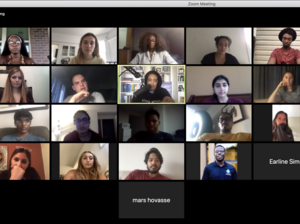
An after-school program in Cambridge that went fully remote last year amid the pandemic is now entering its 10th year, and it’s looking to spread its roots in Boston.
Student-focused business incubator the Possible Project was able to develop remote learning curricula designed around its major two components, entrepreneurship and business enterprise.
A lot of thinking went into how to take an in-person, hands-on learning experience and bring that online, Chief external affairs officer Jake Murray said. The Possible Project, perhaps better known as TPP, worked to maintain its high-quality curriculum and keep high school students engaged during the 2019-2020 school year.
“We are thinking creatively about online learning,” Murray said. “It isn’t just throwing up a PowerPoint. There's all kinds of ways you need to think about the experience and how to engage students.”
Ordinarily, TPP would bring students into a workspace to collaborate and engage with entrepreneurs and educators. When it became impossible to do that safely, TPP provided training so teachers and volunteers could bring that experience online.
More than 100 volunteers were able to aid students in their business ventures and provide feedback. TPP also gave Chromebooks to its participants to ensure they could access all virtual programming. From home, the students created product designs and prototypes and sent them to TPP’s 3D printer. Those products were then sent back to the students.
TPP was co-founded 10 years ago by a group of six biotech entrepreneurs in Cambridge. Now, says co-founder and executive director Becky Levin, is the time for the program to expand across the river to Boston Proper, where they’ve been serving students over the past four years.
“Where we really want to focus and grow is in the Boston community,” Levin said. “We put together a forecast where we’re actually increasing our headcount rather significantly year over year.”
Levin said the goal is to serve 1,000 Boston students each year by 2025. Murray said TPP would expand to two to four schools each year over the next three to four years.
The program currently serves students at Madison Park Technical Vocational High School, Dearborn STEM Academy and the English High School. Students from the Cambridge Rindge and Latin School, Prospect Hill Academy Charter School and Community Charter School of Cambridge also partake in the program.
Levin said it is cost-prohibitive to have multiple sites close together, which is why the focus will be in Boston. The program can also reach more students by focusing its efforts there.
Despite a dip in enrollment numbers at partnering schools last year, TPP was able to serve 1,000 disadvantaged teens after nine years in Cambridge. It also increased its stipend for participants who might need extra money to purchase healthy snacks, which are usually provided during the in-person program. The nonprofit also moved its internship program online and augmented other components to keep on students who might have otherwise dropped out.
“There are aspects of the program that are best delivered in person,” Levin said, but she added that going virtual during the pandemic “allowed us to take a strong look at some of the advantages of virtual programming.”
Murray said moving a nonprofit online was no small feat. Both Murray and Levin credit the full-time educators, volunteers and funders for meeting them halfway and being flexible as they navigated through this unprecedented time.
“It was tough… we were worried about fatigue,” Murray said. “Students are online at school all day, and then to come and participate with us, would they be able to do it? We were really fortunate, and we really felt we were able to keep a high level of engagement.”
In December, the program was awarded a $200,000 equipment and capital grant from the Baker administration.
Although Levin is hoping to have students back in person or in some type of hybrid model by fall of 2021, she is confident that the program will still be able to provide economic justice and opportunity to all students involved. She and Murray are now planning to incorporate STEAM workshops into the program.
“I think so much of our program is forward-looking,” Levin said. “Our students want to be thinking about the future and how things will be different in the future and ‘how can I create my future.’ That, we can continue to do through all of our work.”
Jordan Frias is a contributing writer for BostInno.






